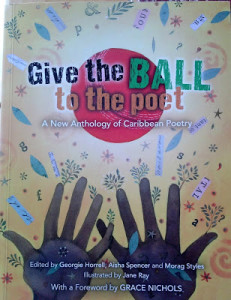Related posts
-

Lindender Taneila Croal shares her journey as a young entrepreneur
By Utamu Belle At 26 years old, Lindener Taneila Croal has her eyes set on living... -

Poetry is my way of expressing what I’ve been through or what I am going through – Kelwin Gittens
By Lakhram Bhagirat Sometimes finding the right word to ascribe to your feelings of intimacy and... -

This International Women’s Day, Let’s focus on
equity over equality By Marlee Silva for ABC News International Women’s Day was a rather foreign...

 The facts of this anthology again: Three (3) poems by three (3) Indian poets out of 90. Not a single one (do we ever need redundancy!) of these three Indian poets have more than a single selection.
The facts of this anthology again: Three (3) poems by three (3) Indian poets out of 90. Not a single one (do we ever need redundancy!) of these three Indian poets have more than a single selection.